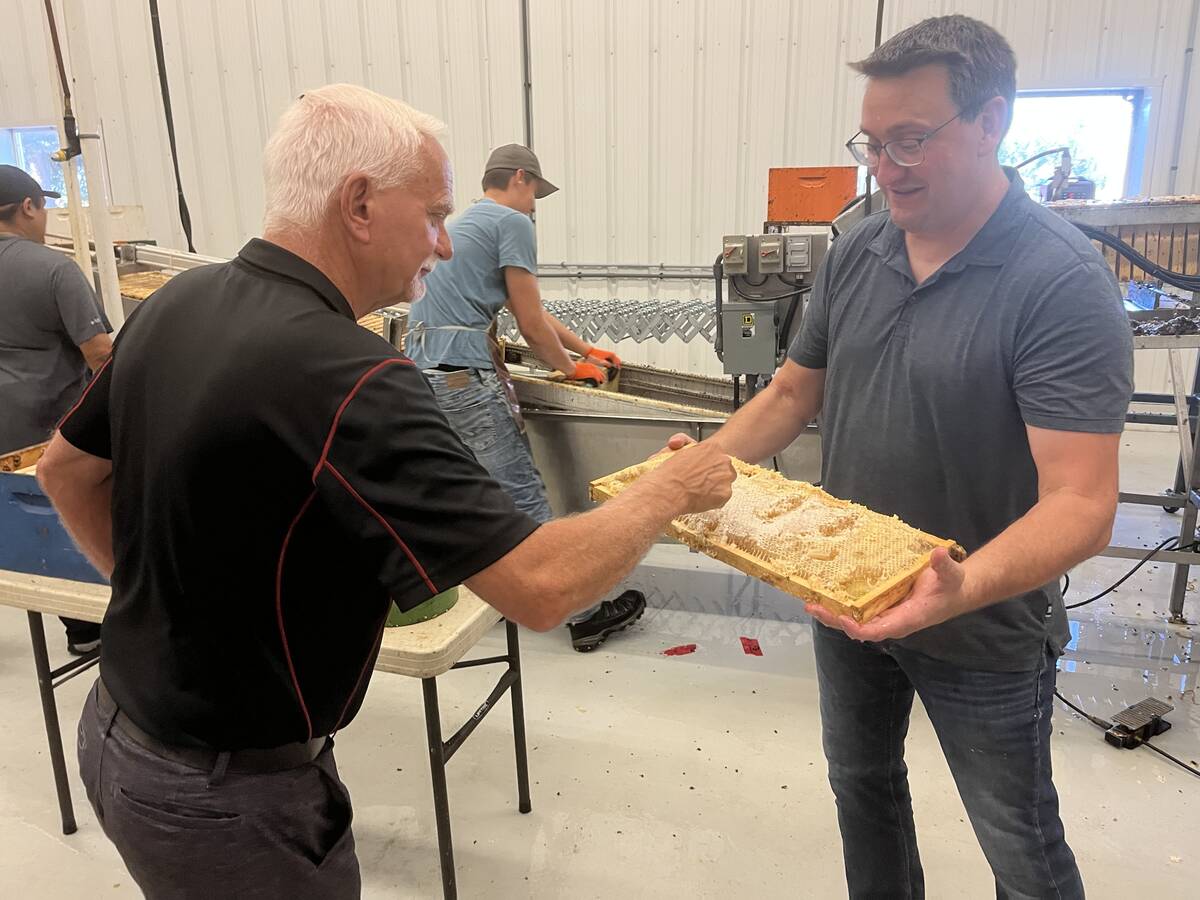It is one thing to have an idea about something. It is something else to experience it.
Cancer is such an experience. Five years ago, I experienced prostate cancer and successfully overcame it, mainly because of well timed surgery. I thought I had experienced it all.
I am now experiencing something new in terms of chemotherapy for a rather rare type of cancer. Again, I am learning a great deal through others sharing the experiences they and their families have had in going through this process.
Read Also

Alberta honey business ‘thrives’ despite bumpy beginnings
Thrive Honey showcases its honey production in market where Alberta produces 40 per cent of all honey produced in the country
Having chemo is like being on a runaway roller-coaster. It works by destroying fast growing cells, but not only the cancer cells. Hair and white blood cells are also flattened at the same time.
The result is tiredness. Dealing with chemotherapy means slowing down and at times almost stopping. Most of us value ourselves by what we get done. Yet at certain points of the cycle of chemotherapy, we have so little energy we can do very little.
If a friend is on chemotherapy, phone them often. If you do not have any infections or colds, visit them. Respect their choice if they wear a face mask while you visit. They need to protect themselves from germs.
While on chemotherapy, phone or
e-mail people, play computer games or watch comedy shows.
Supports are important. The support I have had from friends, community and my column readers has been overwhelming. Short phone calls, e-mails or even visits when appropriate mean a great deal.
Special support contacts are available by phone through a volunteer program called CancerConnections operated by the Canadian Cancer Society. This program links trained volunteers who have had various cancer experiences with others going through it the first time. The service is confidential. Matches are based on common interests. The cancer society covers the long distance phone costs.
The toll-free CancerConnection phone number for Alberta, Saskatchewan and Manitoba is 800-263-6750. In British Columbia, it is 888-939-3333.
A 52-page booklet entitled Chemotherapy: A guide for people with cancer is available from the cancer society, doctor’s offices and most hospitals, or from the Cancer Information Service at 888-939-3333.
Peter Griffiths is a mental health counsellor based in Prince Albert, Sask. His columns are intended as general advice only. His website is www.sasktelwebsite.net/petecope.
















